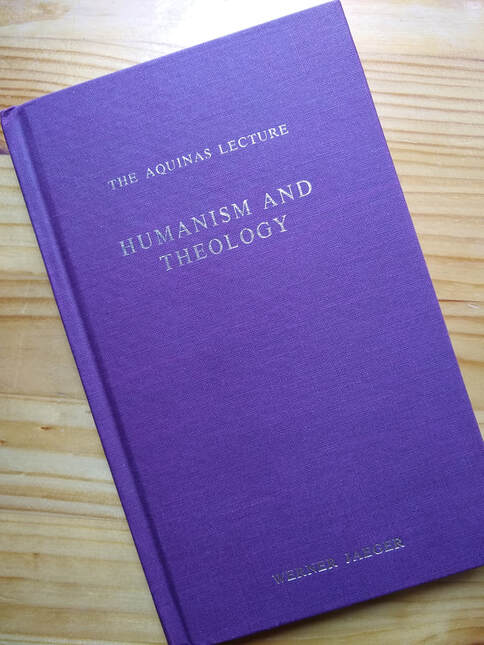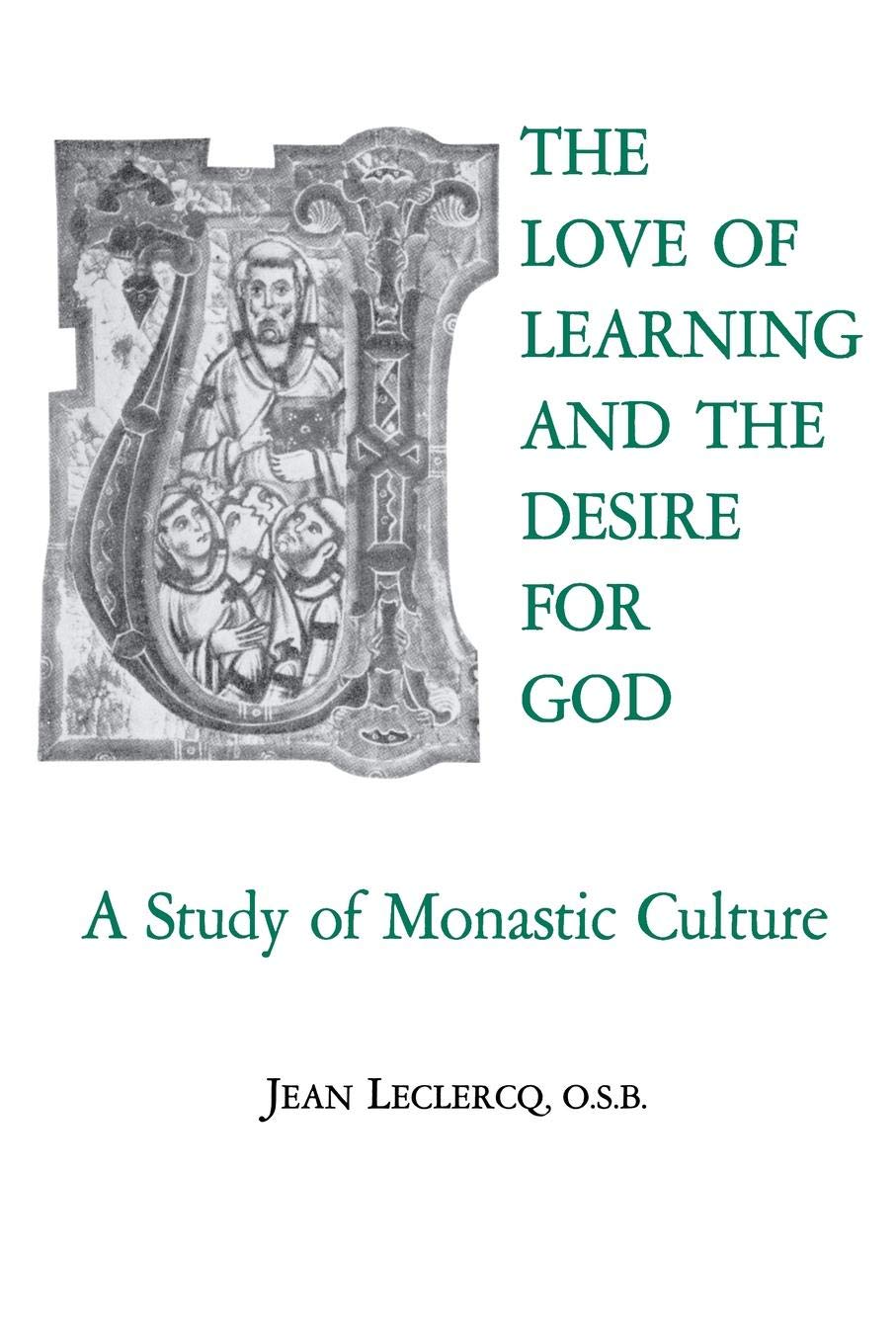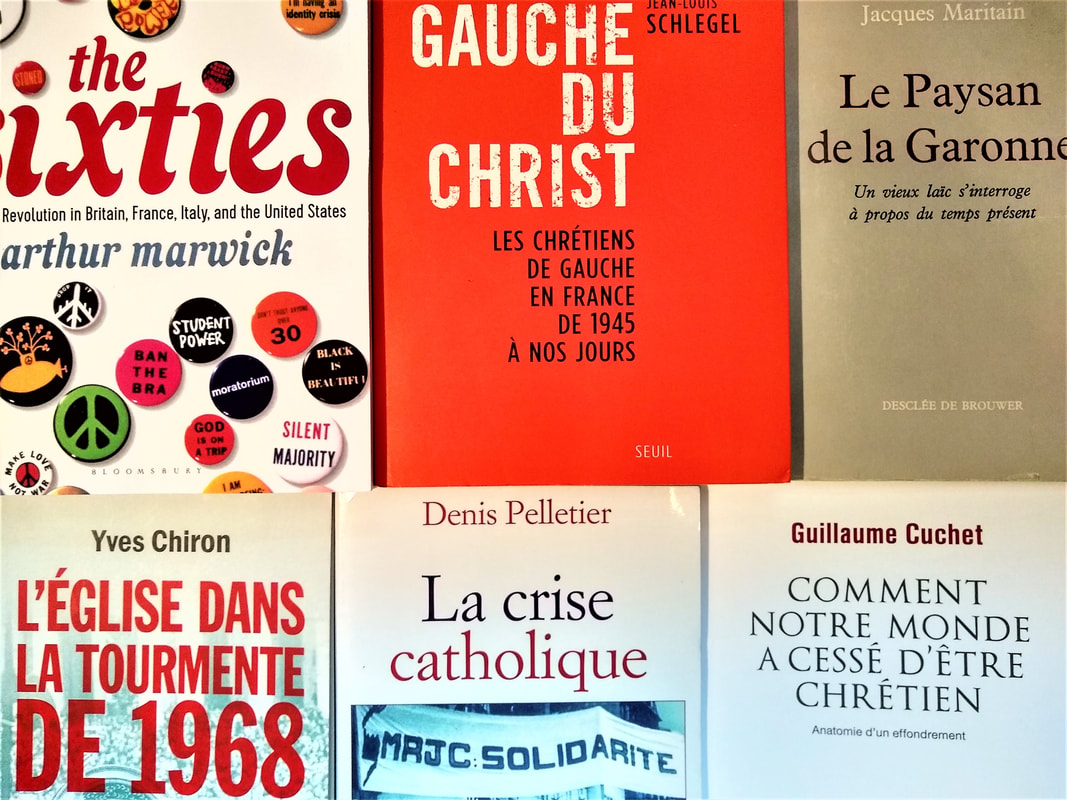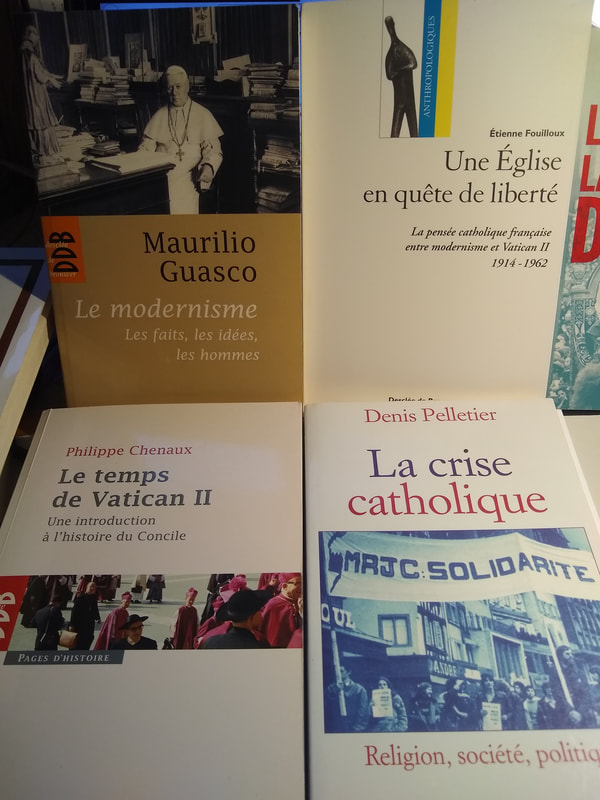
Classical Greek culture and scholastic theology still informed our worldview three quarters of a century ago. When I say "our" worldview, I am referring to that of a significant part of the cultured elites of yesteryear, responsible for keeping alive our connection with the great Western tradition, in order to train new generations of men and women in wisdom.
Before the civilizational disruption of the 1960s, the expression "cultured elites" was redundant. Today it is an unpardonable oxymoron. However, at the back of obscure libraries and dusty bookstores, there are remnants of a time when the work of a university professor in Human Sciences consisted of something other than fostering the new radical left social agenda.
A book such as Humanism and Theology (1943), by German Hellenist Werner Jaeger (1888-1961), is a good example of an academic work that allows us to penetrate the mental universe of the great scholars of the last century, and, through them, to reconnect with the great intellectual tradition of the West, which dates back to Ancient Greece.
The purpose of Jaeger’s book is to study the relationship between the anthropocentric cultural tradition of Ancient Greece and the theocentric scholastic theology of St. Thomas Aquinas. In an age of both fantasized and programmed posthumanism, the careful study of the relationship between classical humanism and Christian theology sounds terribly anachronistic, I know.
For the ancient Greeks, the "enhanced man” was not a genetically modified human body. It was a man cultivated by the paideia (the classical educational program) and elevated by intellectual contemplation. For the Fathers of the Church, the monks of the Middle Ages and the masters of medieval scholasticism, it was a man sanctified by grace and divinized in the beatific vision.
At the end of the long process of cultural and spiritual disaffiliation known as modernity, culture and grace have both been discarded, to be replaced by mass entertainment and the faith in technoscience, while the university has gradually and mostly confined itself short-sightedly to the role of supplier of manpower, out of pure venality, it seems.
As the late Simon Leys wrote it in The Hall of Uselessness (2013), “The university is now under increasing pressure to justify its existence in utilitarian and quantitative terms. Such pressure is deeply corrupting... When a university yields to the utilitarian temptation, it betrays its vocation and sells its soul.” (p. 464) And it widens the gap between us and our intellectual heritage.
Only half a century separates us from scholars like Werner Jaeger or Henri-Irénée Marrou, but the cultural situation has deteriorated itself so much that entering their intellectual universe is now a matter of historical anthropology. We must make a real effort of “mental migration” to familiarize ourselves with their cultural and intellectual frame of reference.
We cannot help thinking that it is precisely because contact has been lost with the life of the spirit promoted by these great scholars that postmodern people, called to greatness by God like all other generations before them, are today rushing to embrace the utopian dream of transcending our natural human limits, not through divinization, but through transhumanism.
If only people knew that there are other ways to be “enhanced” than surrendering to the medical-pharmaceutical complex, which trivializes more and more every day the industrial treatment of human life, genetic engineering and the commodification of human reproduction. If only they could come across a book like Humanism and Theology… or the Bible.
*
Without being a work of Christian apologetics (as far as I know, Werner Jaeger never claimed to be a believer), this little book has the much valuable interest of correcting a certain number of preconceived ideas about the intellectual history of the West, and of restoring the Christian tradition to its central place in the conservation and development of Western civilization.
Delivered in 1943 as part of the Aquinas Lectures, at Marquette University, in Milwaukee (Wisconsin) - a place where Yves Simon (1940), Jacques Maritain (1942) and Étienne Gilson (1947, 1951) also gave lectures over the years -, the text published that same year under the title Humanism and Theology addresses the "problem of the theocentric view of the world represented by St. Thomas and its relationship to the Greek ideal of culture and the classical tradition which is the foundation of all humanism” (p. 2). The examination of this problem provided the Hellenist with an opportunity to recall some historical truths about Christianity that are too often overlooked.
First of all, W. Jaeger insists upon the fact that the best of classical humanism didn’t flourish in relativistic views and the seeking of material gain in the teachings and way of life of the Sophists, these Greeks rhetoricians of the time, who were paid to teach eloquence, and who boasted of their ability to defend the pros or cons on any subject, depending on the desired effect on the audience, thereby showing their little concern for morality and true knowledge. Rather, it flourished, Jaeger claims, in theology and contemplative life with Plato and Aristotle. Consequently, the humanistic tradition is in perfect harmony with Thomasian theocentrism, which promises man the most formidable destiny: that of divinization in the beatific vision.
Then, secondly, the Hellenist rightly reminds us that the Humanist Renaissance of the 15th and 16th centuries was preceded by other revivals of the classical Greek culture, in “the Roman civilization of Cicero’s own time and of the Augustan age” (p. 23), in the fourth century patristic culture, during the Carolingian reign and especially during the scholastic period. Without the Aristotelian-inspired rationalism “of the time of St. Thomas”, “the Renaissance of the 15th century certainly would not have been what it was” (p. 28), says W. Jaeger. For the theological rationalism of the Scholastics has “laid the foundations for any further rational development, both religious and profane.” (p. 28). Hence, the Middle Ages made the Renaissance possible.
Finally, third point, theses Aquinas Lectures were an opportunity for W. Jaeger to recall that the formation of man (the paideia, as the Greeks used to say when talking about education) is fully accomplished, as Plato knew it in his own way, through man's participation in the divine life. For W. Jaeger, the unwillingness of modern humanism to recognize that man has access to God through natural theology, that is, through reason alone, and eventually through Revelation when the grace of conversion and faith is bestowed, is ultimately a profoundly anti-humanist attitude. One that impedes man from knowing himself as he is, from living to the full as he could live, from being what he is: a creature called to communion with the origin, end and purpose of all that is, that is to say, with God.
In short, Humanism and Theology is a little-known gem. A forgotten one, even. Just like the sunken continent of classical studies, to which it belongs, and whose disappearance, like that of Christianity, dramatically weakens the West. To read such a book is to return to the vital sources of our culture.
Before the civilizational disruption of the 1960s, the expression "cultured elites" was redundant. Today it is an unpardonable oxymoron. However, at the back of obscure libraries and dusty bookstores, there are remnants of a time when the work of a university professor in Human Sciences consisted of something other than fostering the new radical left social agenda.
A book such as Humanism and Theology (1943), by German Hellenist Werner Jaeger (1888-1961), is a good example of an academic work that allows us to penetrate the mental universe of the great scholars of the last century, and, through them, to reconnect with the great intellectual tradition of the West, which dates back to Ancient Greece.
The purpose of Jaeger’s book is to study the relationship between the anthropocentric cultural tradition of Ancient Greece and the theocentric scholastic theology of St. Thomas Aquinas. In an age of both fantasized and programmed posthumanism, the careful study of the relationship between classical humanism and Christian theology sounds terribly anachronistic, I know.
For the ancient Greeks, the "enhanced man” was not a genetically modified human body. It was a man cultivated by the paideia (the classical educational program) and elevated by intellectual contemplation. For the Fathers of the Church, the monks of the Middle Ages and the masters of medieval scholasticism, it was a man sanctified by grace and divinized in the beatific vision.
At the end of the long process of cultural and spiritual disaffiliation known as modernity, culture and grace have both been discarded, to be replaced by mass entertainment and the faith in technoscience, while the university has gradually and mostly confined itself short-sightedly to the role of supplier of manpower, out of pure venality, it seems.
As the late Simon Leys wrote it in The Hall of Uselessness (2013), “The university is now under increasing pressure to justify its existence in utilitarian and quantitative terms. Such pressure is deeply corrupting... When a university yields to the utilitarian temptation, it betrays its vocation and sells its soul.” (p. 464) And it widens the gap between us and our intellectual heritage.
Only half a century separates us from scholars like Werner Jaeger or Henri-Irénée Marrou, but the cultural situation has deteriorated itself so much that entering their intellectual universe is now a matter of historical anthropology. We must make a real effort of “mental migration” to familiarize ourselves with their cultural and intellectual frame of reference.
We cannot help thinking that it is precisely because contact has been lost with the life of the spirit promoted by these great scholars that postmodern people, called to greatness by God like all other generations before them, are today rushing to embrace the utopian dream of transcending our natural human limits, not through divinization, but through transhumanism.
If only people knew that there are other ways to be “enhanced” than surrendering to the medical-pharmaceutical complex, which trivializes more and more every day the industrial treatment of human life, genetic engineering and the commodification of human reproduction. If only they could come across a book like Humanism and Theology… or the Bible.
*
Without being a work of Christian apologetics (as far as I know, Werner Jaeger never claimed to be a believer), this little book has the much valuable interest of correcting a certain number of preconceived ideas about the intellectual history of the West, and of restoring the Christian tradition to its central place in the conservation and development of Western civilization.
Delivered in 1943 as part of the Aquinas Lectures, at Marquette University, in Milwaukee (Wisconsin) - a place where Yves Simon (1940), Jacques Maritain (1942) and Étienne Gilson (1947, 1951) also gave lectures over the years -, the text published that same year under the title Humanism and Theology addresses the "problem of the theocentric view of the world represented by St. Thomas and its relationship to the Greek ideal of culture and the classical tradition which is the foundation of all humanism” (p. 2). The examination of this problem provided the Hellenist with an opportunity to recall some historical truths about Christianity that are too often overlooked.
First of all, W. Jaeger insists upon the fact that the best of classical humanism didn’t flourish in relativistic views and the seeking of material gain in the teachings and way of life of the Sophists, these Greeks rhetoricians of the time, who were paid to teach eloquence, and who boasted of their ability to defend the pros or cons on any subject, depending on the desired effect on the audience, thereby showing their little concern for morality and true knowledge. Rather, it flourished, Jaeger claims, in theology and contemplative life with Plato and Aristotle. Consequently, the humanistic tradition is in perfect harmony with Thomasian theocentrism, which promises man the most formidable destiny: that of divinization in the beatific vision.
Then, secondly, the Hellenist rightly reminds us that the Humanist Renaissance of the 15th and 16th centuries was preceded by other revivals of the classical Greek culture, in “the Roman civilization of Cicero’s own time and of the Augustan age” (p. 23), in the fourth century patristic culture, during the Carolingian reign and especially during the scholastic period. Without the Aristotelian-inspired rationalism “of the time of St. Thomas”, “the Renaissance of the 15th century certainly would not have been what it was” (p. 28), says W. Jaeger. For the theological rationalism of the Scholastics has “laid the foundations for any further rational development, both religious and profane.” (p. 28). Hence, the Middle Ages made the Renaissance possible.
Finally, third point, theses Aquinas Lectures were an opportunity for W. Jaeger to recall that the formation of man (the paideia, as the Greeks used to say when talking about education) is fully accomplished, as Plato knew it in his own way, through man's participation in the divine life. For W. Jaeger, the unwillingness of modern humanism to recognize that man has access to God through natural theology, that is, through reason alone, and eventually through Revelation when the grace of conversion and faith is bestowed, is ultimately a profoundly anti-humanist attitude. One that impedes man from knowing himself as he is, from living to the full as he could live, from being what he is: a creature called to communion with the origin, end and purpose of all that is, that is to say, with God.
In short, Humanism and Theology is a little-known gem. A forgotten one, even. Just like the sunken continent of classical studies, to which it belongs, and whose disappearance, like that of Christianity, dramatically weakens the West. To read such a book is to return to the vital sources of our culture.




 RSS Feed
RSS Feed
